|
We live in truly unprecedented times. On the internet, you can find videos of anything you can think of. Unfortunately, that includes highly distressing content. Just last week, a church service livestream in Sydney turned graphic when an attacker stabbed Bishop Mar Mari Emmanuel. The violent footage was quickly distributed online, including on social media platforms.
Australia’s eSafety commissioner acted swiftly, demanding a takedown of the terrorist content, and platforms complied. Except for X (formerly known as Twitter), whose billionaire owner Elon Musk decided this request would be an occasion to fight for free speech in light of “censorship”.
While X did agree to prevent access to the content in Australia, at an urgent federal court hearing this week the commissioner demanded a full removal, worldwide. But should Australian courts have the right to decide what foreign citizens see online on a foreign-owned platform?
Internet law professor Dan Jerker B. Svantesson from Bond University argues this is a risky proposition – if Australian laws should have such a broad reach, then what about draconian censorship laws from other countries, such as Iran, China or Russia? The internet is a shared resource, and we must be careful that local laws don’t spill over, impacting people in other countries.
However, the violent videos from the Sydney attack are an unusually poor test case for free speech, Svantesson points out. There is simply no value to keeping these videos online, and even the staunchest free speech advocates, such as Musk, can’t credibly object to all censorship.
|

|
Signe Dean
Science + Technology Editor
|
|

Dan Jerker B. Svantesson, Bond University
Using Australian laws to force a foreign-owned platform to take down content globally sets a risky precedent – should we allow all countries to impose their laws on the internet?
|
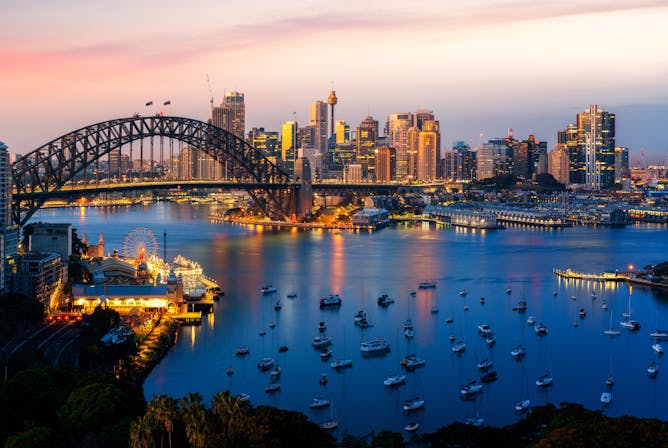
David Hayward, RMIT University
The NSW government wants GST to be allocated according to population. But doing so ignores different service delivery needs between states.
|
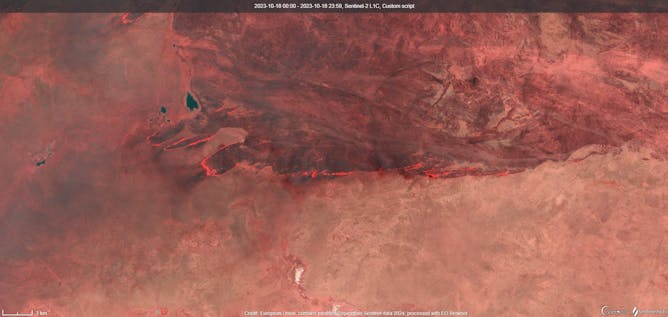
Rohan Fisher, Charles Darwin University
The 2023 megafires burnt more than 84 million hectares of desert and savannah in northern Australia. That’s larger than the whole of NSW, or more than three times size of the UK.
|

Samuel Murray, University of Liverpool
In the album, Swift claims that she can use heartbreak as a stimulus for creativity, rather than allow it to dictate her everyday life.
|

Sam Whiting, University of South Australia; Catherine Strong, RMIT University; Charlotte Markowitsch, RMIT University; Laura Glitsos, Edith Cowan University; Timothy McKenry, Australian Catholic University
Everyone has a favourite band, or a favourite composer, or a favourite song. So if we all have our own opinions on music, is it ever possible to judge it objectively?
|

Shalini Arunogiri, Monash University; Leigh Walker, Florey Institute of Neuroscience and Mental Health; Roberta Anversa, The University of Melbourne
The animal studies are promising but early research in humans show mixed results. Here’s what we know so far.
|
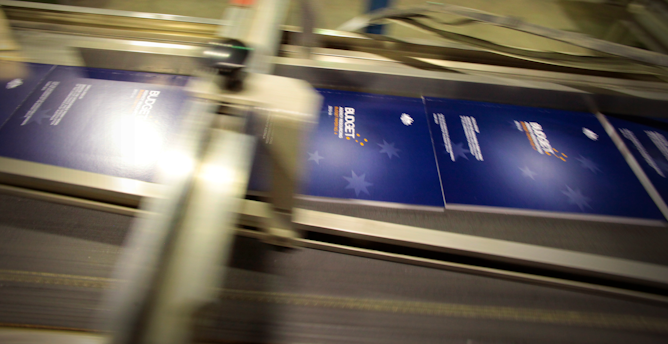
Peter Martin, Crawford School of Public Policy, Australian National University
The thing to look for is the “fiscal strategy”. For the past quarter-century, it’s provided a surprisingly accurate insight into what each budget is doing.
|
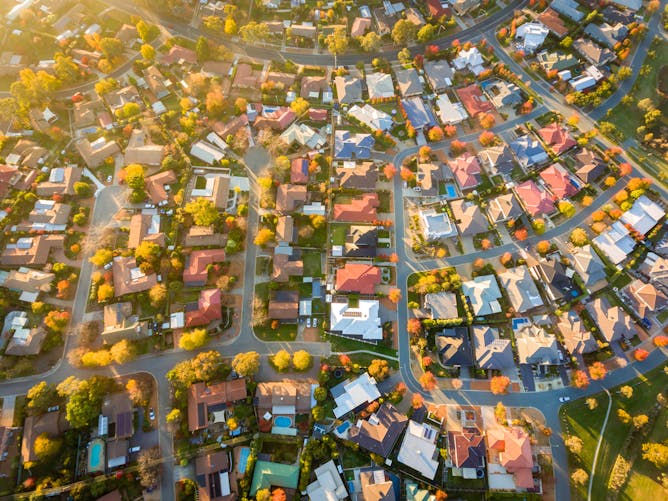
Chris Wallace, University of Canberra
Next month’s budget is an opportunity for the government to move beyond its ‘I feel your pain’ rhetoric to a HomeKeeper-style policy for this particular group of temporarily squeezed Australians.
|

Stephen Duckett, The University of Melbourne
We now have a sensible pathway to improve access to health care, using the skills of nurses, pharmacists and GPs appropriately.
|

Kadian Pow, Birmingham City University
A young white southern belle asks a woman not to cheat with her man while an older Black southern queen warns a woman against cheating with her husband.
|
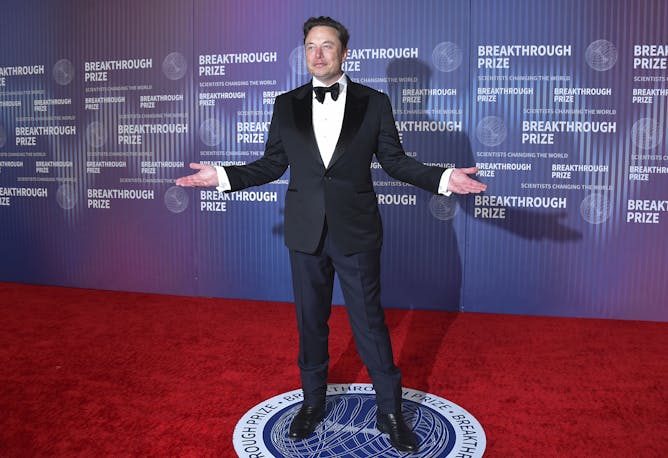
Giovanni E Ferreira, University of Sydney; Christine Lin, University of Sydney; Christopher Maher, University of Sydney; Ian Harris, UNSW Sydney; Joshua Zadro, University of Sydney
Musk has recommended people experiencing severe neck and back pain should consider disc replacement surgery. Here’s what the research says.
|
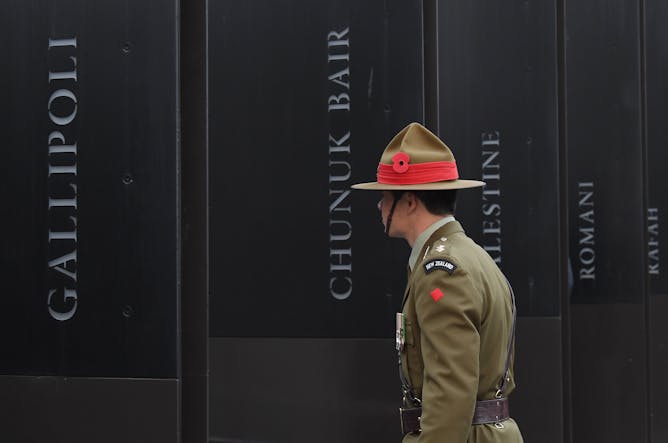
Olli Hellmann, University of Waikato
The roots of today’s Israel-Palestine crisis can be traced back to colonial power dealings during World War I – of which the Gallipoli campaign and Anzac legend are an integral part.
|
Politics + Society
|
-
Kate Burridge, Monash University
Ever wondered where everyday things got their names? Or where words come from? Language is a powerful thing, creating new words all the time.
|
|
Health + Medicine
|
-
Ruth Knight, Queensland University of Technology
Menstruation is a normal part of life but only a minority of workplaces have policies supporting workers who experience pain and discomfort as a result of their period.
|
|
Environment + Energy
|
-
Dan Lowry, GNS Science; Holly Kyeore Han, NASA
Some 7,000 years ago, West Antarctica’s ice sheet retreated, most likely driven by warmer ocean currents slipping under the ice. This could happen again – unless we cut emissions fast.
|
|
Books + Ideas
|
-
Edwina Preston, The University of Melbourne
Edwina Preston approaches Nova Weetman’s ‘generous and open’ grief memoir from a place of shared loss.
-
Luke Johnson, University of Wollongong
An 8000-km hitchhiking trip is at the heart of Anna Broinowski’s Datsun Angel. Dominic Gordon, in contrast, kicks his young self around Melbourne’s alleys like a half-squashed can of energy drink.
|
|
Business + Economy
|
-
Ruth Knight, Queensland University of Technology
Menstruation is a normal part of life but only a minority of workplaces have policies supporting workers who experience pain and discomfort as a result of their period.
|
|
| |
|
|
|
The Conversation AU
Melbourne VIC, Australia
•
Full Time
|

|
|
|
|
| |
| |

|
| |
| |
| |
Featured Events, Courses & Podcasts
|
View all
|
|
|
|
| |
| |
| |
| |
| |
|
|